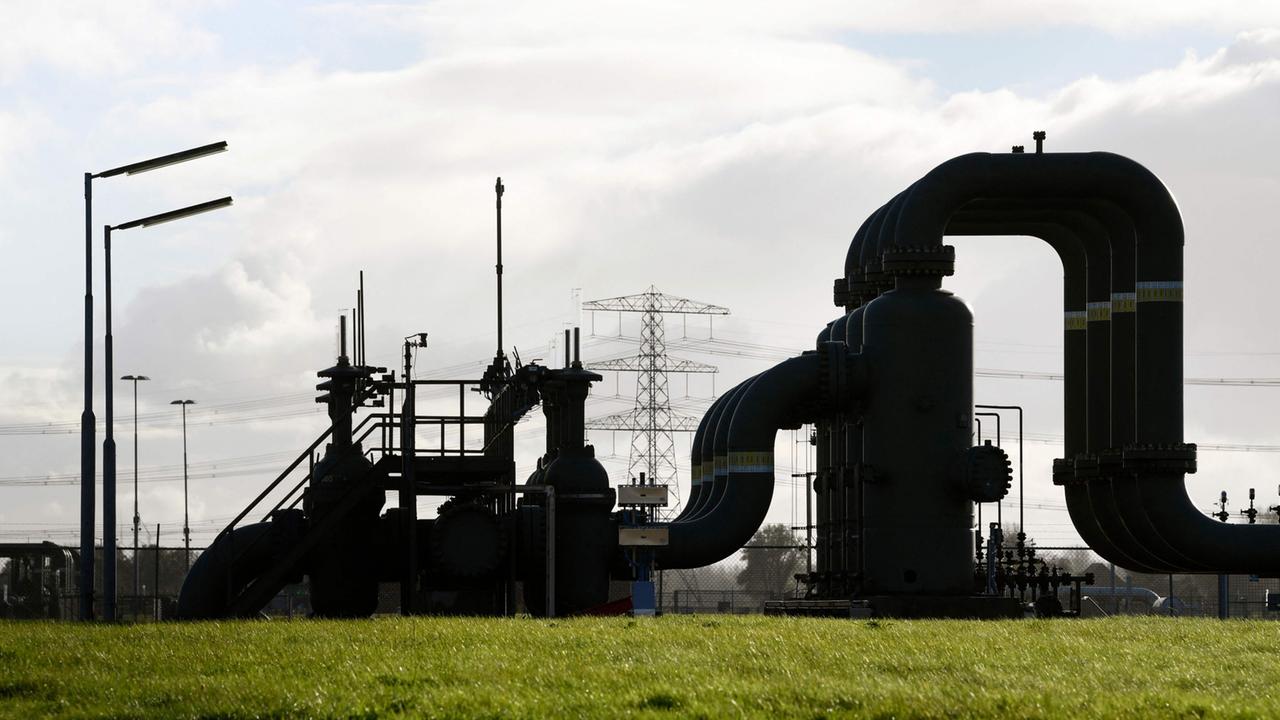After 60 years and profits in the billions, natural gas will no longer be produced in the Netherlands from autumn. Many see the step as long overdue – because the funding has repeatedly triggered earthquakes.
The Netherlands stopped producing natural gas after around 60 years. State Secretary Hans Vijlbrief announced in The Hague that production from the gas fields in the north-eastern province of Groningen would cease on October 1st. It is a historic step, even if the decision was expected. The reason for this is the great damage caused by numerous earthquakes. “We’re really turning the tap off,” said the Secretary of State.
The underground gas fields near Groningen in the north of the Netherlands are the largest deposits in Europe. Vijlbrief spoke of an “important moment after decades of gas production and especially the consequences of this gas production for Groningen’s residents”. The problems of the population would not be eliminated immediately, “but the source of all suffering will be closed from October.”
Gas extraction triggered 1600 earthquakes
The natural gas field was discovered in 1959 and made the Netherlands the second largest natural gas producer in Europe after Norway. More than 2,300 billion cubic meters have been pumped since 1963, about half of which was for export, including to Germany. The state made good money: more than 360 billion euros, the oil companies Shell and Exxon Mobil around 66 billion euros. But the production led to around 1600 earthquakes over the years. Tens of thousands of buildings were severely damaged, affecting around 100,000 people.
In recent years, there has been anger and despair among citizens, who have still not been compensated years later. A parliamentary commission of inquiry came to the devastating verdict in the spring: the state and the oil companies Shell and Exxon Mobil had systematically disregarded the safety of the citizens for decades. “Money was more important than safety and health,” it said. The government and oil companies acknowledged mistakes, and a Shell executive also spoke out in favor of closing the field. In April, the government promised the damaged regions 22 billion euros in compensation.
Funding continued because of the energy crisis
Gas production had already been reduced in recent years because of the risk of earthquakes. In 2021 only 4.5 billion cubic meters of gas were produced in Groningen. In previous years it had been over 20 billion cubic meters. Gas production should be stopped completely by 2022.
In view of the global energy crisis in the wake of Russia’s war of aggression in Ukraine, the government announced last fall that another 2.8 billion cubic meters of gas should be withdrawn – the minimum amount required to operate the existing locations and infrastructure.
Gas field should exist as an emergency reserve for another year
The government under Prime Minister Mark Rutte has now decided in a cabinet meeting to stop production completely by October 1st. “Due to the uncertain international situation” it will remain possible for another year to take gas at the site in “very unusual situations”, the government explained – for example in very severe cold or in the event of a lack of gas. By October 2024, the last eleven wells would then be permanently closed.
It is estimated that there are still 450 billion cubic meters of natural gas in the field. This roughly corresponds to the country’s gas consumption for ten years. According to the government, the energy supply is secure and the gas storage facilities are well stocked.




